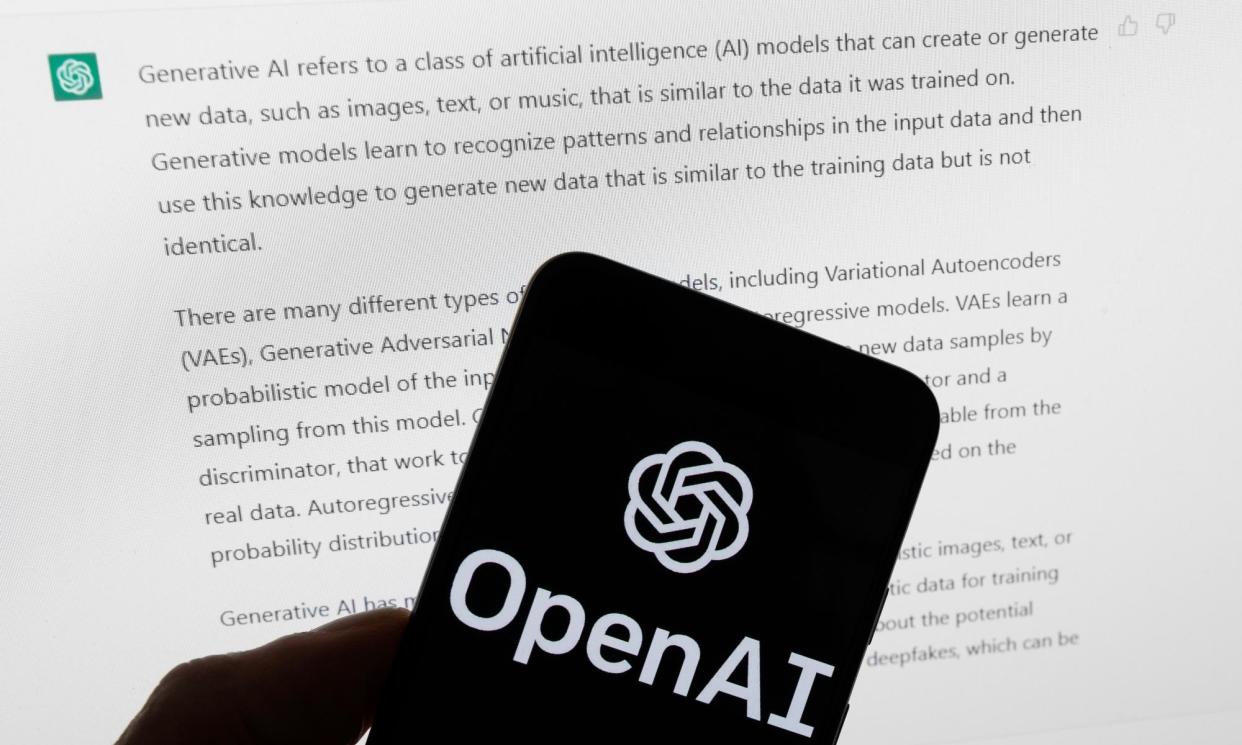OpenAI to use FT journalism to train artificial intelligence systems

The Financial Times has struck a deal with the ChatGPT developer OpenAI that allows its content to be used in training artificial intelligence systems.
The FT will receive an undisclosed payment as part of the deal, which is the latest to be agreed between OpenAI and news publishers.
Under the arrangement, ChatGPT users will receive summaries and quotes from FT journalism, as well as links to articles, in responses to prompts, where appropriate.
John Ridding, the chief executive of the FT Group, said it was “right” that AI companies paid publishers for their material.
The New York Times is suing OpenAI and its largest investor, Microsoft, over use of its content to train large language models, the technology that underpins chatbots such as ChatGPT.
“OpenAI understands the importance of transparency, attribution, and compensation – all essential for us,” said Ridding. “At the same time, it’s clearly in the interests of users that these products contain reliable sources.”
OpenAI has already signed similar agreements with the US news agency the Associated Press, the French title Le Monde, the El País owner Prisa Media and Germany’s Axel Springer, which publishes the Bild tabloid.
Brad Lightcap, the OpenAI chief operating officer, said it was important for the company to “represent quality journalism as these products take shape”.
“As with any transformative technology, there is potential for significant advancements and major challenges, but what’s never possible is turning back time,” he said.
Chatbots such as ChatGPT are at the forefront of advances in generative AI, the term for technology that can produce convincing text, image or audio from simple hand-typed prompts.
However, the models that underpin these tools are trained on vast amounts of data taken from the internet, including copyright-protected text and images.
Authors including Jodi Picoult, John Grisham and the Game of Thrones writer, George RR Martin, are suing OpenAI for copyright infringement in the US.
Getty Images, which owns one of the largest photo collections in the world, is suing the company behind image generator Stable Diffusion in the UK on a similar basis.
Last year Roula Khalaf, the FT editor, said in an open letter that a team in its newsroom would “experiment responsibly” with AI tools and train journalists in using generative AI for “story discovery”.
However, she said it would be transparent with its use of the technology and its journalism would continue to be written by humans.
Niamh Burns, a senior research analyst at Enders Analysis, said the FT’s “high-quality” content would be attractive to OpenAI and improve its chatbot’s responses.
“Its material will be of real value to OpenAI for powering a chatbot that can output accurate, high-quality responses to user queries needing up-to-date information,” she said. “The FT’s product and brand strength also means that it is among the most insulated from any substitution risk that comes with AI products gaining steam among users.”


